#garson kanin
Text


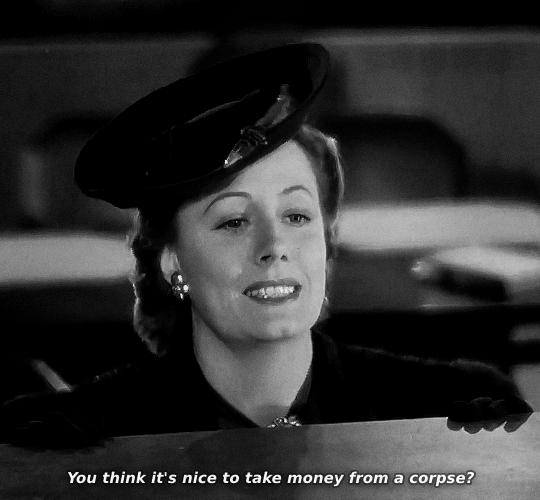
“That’ll cost you a fine of 25 dollars.″
MY FAVORITE WIFE (1940) dir. Garson Kanin
#my favorite wife#irene dunne#garson kanin#oldhollywoodedit#classicfilmcentral#silverscreendames#filmgifs#my favourite wife#ellisgifs#queue
498 notes
·
View notes
Text
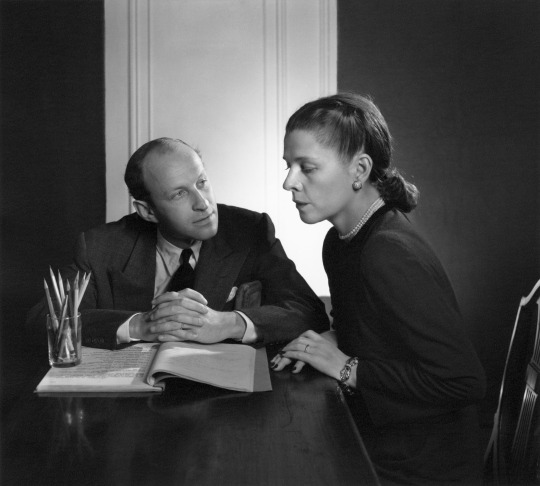
Garson Kanin and Ruth Gordon in 1946 by Yousuf Karsh
45 notes
·
View notes
Photo

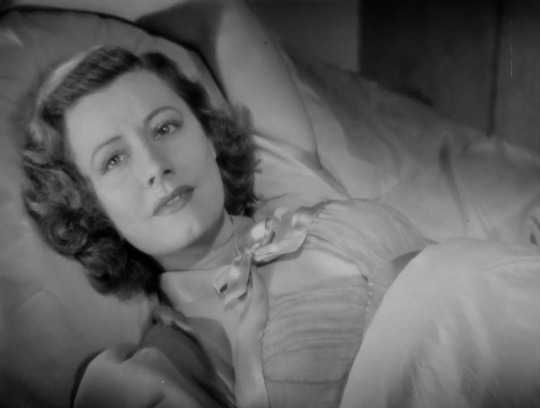


Irene Dunne in MY FAVORITE WIFE (1940, dir. Garson Kanin)
168 notes
·
View notes
Text

Rosemary Forsyth-Dick Van Dyke "Some kind of a nut" 1969, de Garson Kanin.
11 notes
·
View notes
Text
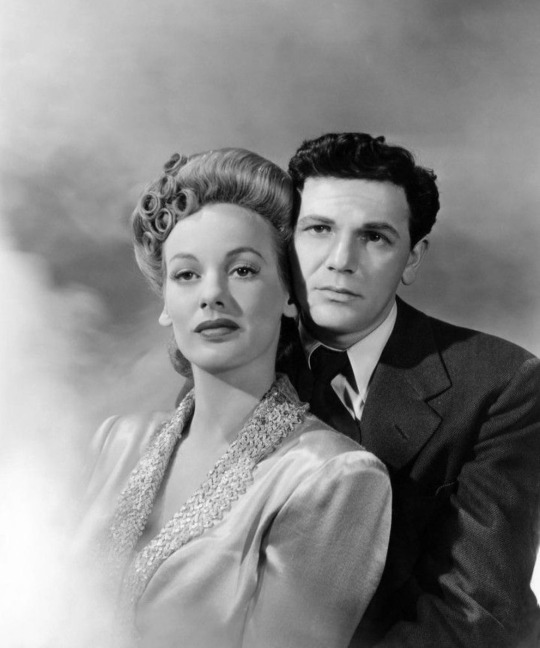
Julie Doing “Stuff” with Famous People (22nd post
The photographer for this BETWEEN TWO WORLDS promo goes for an otherworldly effect as Julie and Faye Emerson strike a pensive pose.

Julie cheers the action at a Sinatra Swooner’s charity softball game on the sidelines with Danny Kaye.

Hey! We gotta eat. On the set of BODY AND SOUL, Julie catches a bite and a gab with cinematographer, James Wong Howe and journalist, Aline Mosby.

Mmmwwaaaahhhh!!!! Julie plants one on Priscilla Lane in a FOUR DAUGHTERS promo photo.

Julie, actor Ralph Bellamy, and director Garson Kanin getting off an American Airlines flight in October of 1940.
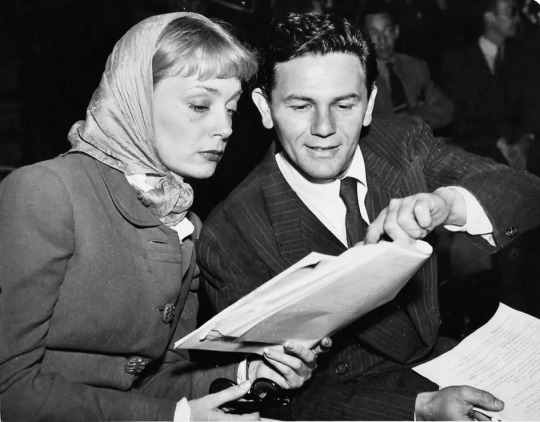
June Havoc reviews a script with Julie for Theatre Guild On the Air in May of 1946.
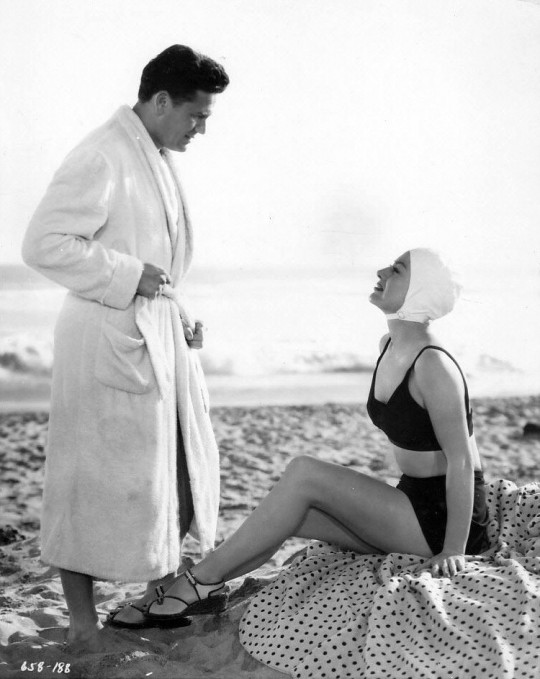
Julie and Joanie (Crawford, that is) on the beach during the filming of HUMORESQUE.

The event? Who knows? But whatever was happening, I’m sure that was the perfect hat for the day, Rosalind Russel! Julie agrees, I’m sure!

I. Can’t. Love. This. MORE! Julie and Ida Lupino Rumba with dancers in a publicity photo for OUT OF THE FOG. Sure, Julie looks sweet here, but his character was completely despicable in this one!
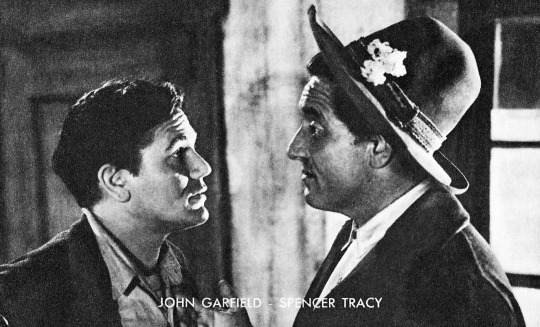
Behind the scenes on TORTILLA FLAT.
#spencer tracy#rosalind russell#ida lupino#priscilla lane#john garfield#joan crawford#james wong howe#Faye Emerson#danny kaye#Sinatra Swooner’s#june havoc#garson kanin#ralph bellamy#Julie Doing “Stuff” with Famous People
19 notes
·
View notes
Text
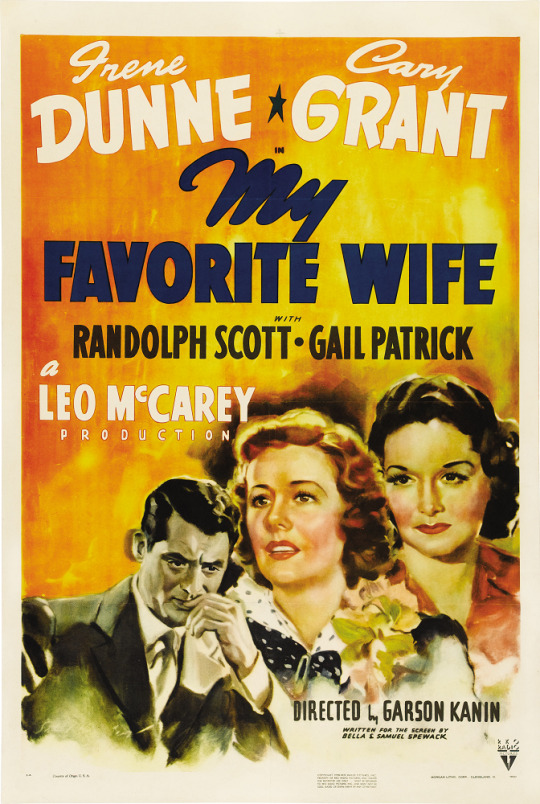
#submitted#movies#polls#my favorite wife#cary grant#irene dunne#garson kanin#ended#result: unheard of
3 notes
·
View notes
Text


My Favorite Wife dir. Garson Kanin (1940)
2 notes
·
View notes
Text

Born Yesterday
#:)#born yesterday#judy holliday#william holden#george cukor#garson kanin#50s#movie#film#drama#comedy#dramedy#classic#classic movie#classic movies
24 notes
·
View notes
Photo

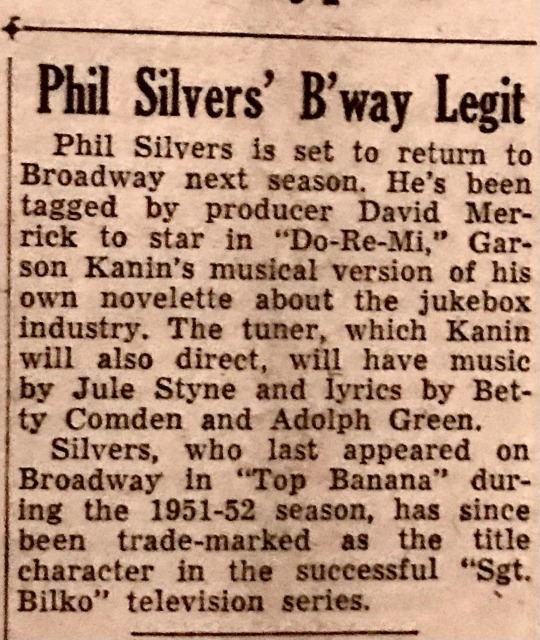
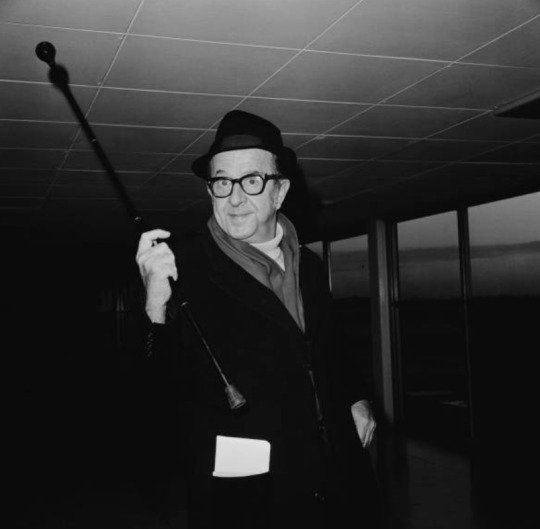
Phil Silvers: Back on Broadway
15 notes
·
View notes
Text

#Bachelor Mother#Ginger Rogers#David Niven#Charles Coburn#Frank Albertson#E. E. Clive#Garson Kanin#1939
2 notes
·
View notes
Text
New episode!
Script below the break
Hello and welcome back to The Rewatch Rewind! My name is Jane, and this is the podcast where I count down my top 40 most frequently rewatched movies in the 20 years from 2003 through 2022. Today I will be discussing number 27 on my list: MGM’s 1949 courtroom comedy Adam’s Rib, directed by George Cukor, written by Ruth Gordon and Garson Kanin, and starring Spencer Tracy, Katharine Hepburn, and Judy Holliday.
When housewife Doris Attinger (Judy Holliday) shoots her husband Warren (Tom Ewell) at the home of his lover Beryl Caighn (Jean Hagen), assistant district attorney Adam Bonner (Spencer Tracy) is assigned to prosecute her. Adam’s wife, defense attorney Amanda (Katharine Hepburn) is moved by Doris’s story and fed up with the double standard for men and women regarding adultery, so she decides to represent her. The tension in the courtroom leads to tension at home between the Bonners, which is further strained by their neighbor Kip (David Wayne), a musician who is very openly interested in Amanda.
I think this was the first Spencer Tracy/Katharine Hepburn movie I watched, but it was the sixth that they made together, out of nine total. Somehow this is the only one to make it into my top 40, although Pat and Mike was very close, with 14 views. Both Adam’s Rib and Pat and Mike were written specifically for Tracy and Hepburn, who were together in real life, by their friends Ruth Gordon and Garson Kanin, who were married to each other, so it’s unsurprising that the stars and the scripts were perfectly suited for each other. And yes, I am talking about the same Ruth Gordon who was also an actress and won an Oscar for being delectably creepy in Rosemary’s Baby. Looking back on my viewing history of Adam’s Rib is very interesting to me: I watched it twice in 2003, once in 2004, and three times in 2005, then took a fairly long break and saw it again in 2009, then 2011, then another break until 2016, and then I watched it twice in 2018, once in 2019, once in 2020, twice in 2021, and three times in 2022. So I watched it a lot soon after I started keeping track, then hardly revisited it at all until the last five years I was tracking, when I watched it a lot again. This wasn’t a conscious decision so I’m not sure exactly why it happened, but I do know that there are things I appreciate about it now that I didn’t quite catch when I was younger, and I think I needed some time away from it to realize that.
There are two main reasons I enjoy this movie. One is that it’s very entertaining and funny, and the other is that it’s fascinating from a historical socio-political perspective. When I was younger, I mainly focused on the first reason, but more recently the second reason has particularly compelled me to keep rewatching. I’m definitely still there for the comedy though. Some of it is broad and over-the-top, such as the scene when a witness, who is also a female weightlifter, picks up Adam in the courtroom and lifts him over her head, but most of it is more understated. As I mentioned at the end of last episode, I’m pretty sure my favorite part of the whole movie is when Beryl Caighn is on the stand and says she heard a noise, and when Adam asks her to clarify what kind of a noise, she pauses for a moment and replies, “Like a sound.” That is so perfectly tailored to my sense of humor that I can’t believe that my parents weren’t even alive when it was written. Also I would like to acknowledge that this was Jean Hagen’s film debut, and while she doesn’t have much screentime, every moment of her performance is gold. (Jean Hagen is, of course, best remembered for playing Lina Lamont in Singin’ in the Rain three years later.)
Adam’s Rib was also an important steppingstone in Judy Holliday’s career. She was starring in Born Yesterday on Broadway (which was also written by Garson Kanin) but was relatively unknown in Hollywood and was initially not considered for the film adaptation. Her performance in Adam’s Rib convinced the producer of Born Yesterday to give her a screen test, and she ultimately got the part and won an Oscar for it. Katharine Hepburn in particular worked hard to get her recognized, asking director George Cukor to focus more on Holliday than on her in their shared scenes, and then leaking stories to the press about how Holliday’s performance was so fabulous it stole the spotlight from her and Spencer Tracy. This behavior is particularly surprising from Katharine Hepburn if you recall how competitive and envious she was when working with Ginger Rogers in Stage Door. Clearly she was far more mature and self-assured at this point in her career than she had been 12 years earlier. And she was also correct: Judy Holliday gave a fabulous performance in Adam’s Rib, and nobody else could have played her role as well as she did in Born Yesterday. She had such perfect comedic timing. My second favorite part of Adam’s Rib, after the “noise like a sound” exchange, is when Amanda is interviewing Doris in jail – which was the main scene that convinced the producer of Born Yesterday to consider casting Judy Holliday. The way Holliday just keeps talking every time Hepburn thinks she’s finished and is about to say something is brilliantly done. Apparently Holliday was trembling because she was so nervous to be working with Hepburn, but she managed to turn that into part of her character and it works perfectly. That scene also features Eve March as Amanda’s secretary Grace, whose snide remarks greatly add to the humor as well. Watching these three women masterfully turning a serious situation into comedy never gets old.
The character I’ve changed my mind about the most over the years is the neighbor Kip, played by David Wayne. Kip is the kind of guy who clearly thinks he’s the funniest person in the room, and when I watched this movie in my early teens, I was inclined to agree with him. I enjoyed his antics, and I felt bad for him when Adam was mean to him. But as I continued to rewatch this movie, he started to irritate me, and now I can barely stand him. Granted, I do still enjoy his song “Farewell Amanda,” which in real life was written by Cole Porter, although the way he just casually walks into a married couple’s apartment and sings a love song to one of them is so rude. In last week’s episode I talked about the trope of the married couple’s male friend who is interested in the wife, and Kip is one of the most obnoxious instances of that trope. He’s not anywhere near as funny or charming as he thinks he is. This isn’t meant as a criticism of the movie; I feel like he’s intentionally irritating, and he’s definitely important to the plot and the message of the film. But I do think that when I was watching this movie mainly for the comedy, realizing that I no longer found Kip funny was a big part of why I started rewatching it less frequently.
But what I’ve grown to appreciate more recently about this movie is how progressive it was for its time, and the fascinating way that it has aged because of that. Bear in mind that this movie was made in 1949, shortly after WWII, very much in the “women stay home and support your man and raise those boomer children” era. So it was quite bold of this movie to question gender roles, particularly in terms of the infidelity double standard. After Amanda reads about the shooting in the paper but before she has taken the case, she asks Grace what she thinks about a man who cheats on his wife, and Grace replies, “Not nice, but…” and shrugs. Then Amanda asks, “What about a wife who cheats on her husband?” and Grace says, “Something terrible!” When Amanda demands to know why there’s a difference, Grace protests, “I don’t make the rules!” And Amanda retorts, “Sure you do; we all do!” And I think that’s such an important point: even if you don’t agree with social norms, accepting them and perpetuating them is equivalent to endorsing them. Amanda decides to argue that if a man confronted his cheating wife with a gun, people would consider him to be justified, and there shouldn’t be any difference in this case just because the genders are swapped. Adam, on the other hand, argues that nobody has the right to just show up at somebody’s house and shoot them. And what’s so great about this conflict is that they’re both partly right and partly wrong. Amanda’s right that women shouldn’t be punished more harshly for cheating on their spouses than men are, but at the same time, that doesn’t mean everybody should go around shooting each other. And Adam’s right about that part, but he’s wrong in the way he dismisses his wife’s legitimate concerns and fails to recognize the effects of misogyny on society and on his marriage.
It is a little odd that Doris is charged with attempted murder instead of assault with a deadly weapon or something like that, but this way it’s easier to believe that she is found innocent. She definitely did commit assault, but it doesn’t seem like she really meant to kill anyone. I’m kind of surprised the censors allowed her to be acquitted, since my understanding of production codes is that crime couldn’t be shown to pay. I guess Warren getting shot was his punishment for cheating, so now they’re even? I want to know what happens to the Attingers after the trial – hopefully they get divorced and manage to find some happiness – but we don’t get to find out because ultimately the story isn’t about them; it’s about the Bonners. Adam has moved out after the whole weightlifter-picking-him-up episode, and Kip has started to attempt to take his place. After the trial, Amanda is at Kip’s apartment to go over a contract with him, but she’s distracted with worry about what’s going to happen to her marriage, and instead of listening and being a supportive friend, Kip decides it’s a good time to confess his love for her, using the irresistible line that he’s in love with her because she lives across the hall and it’s so convenient. And then Adam bursts in with a gun, and Amanda, terrified, says, “You have no right! Nobody has the right-” and then realizes what she’s saying. Satisfied, Adam reveals that the gun is actually made of licorice, and Amanda is furious, but it’s kind of the best possible outcome here: Doris doesn’t have to go to jail, but her actions are not being condoned, which I assume is what appeased the censors. And then later Adam demonstrates that men and women are truly equal by crying to get what he wants, which is…not great, but…I guess it’s good to challenge the stereotype that masculine men aren’t supposed to cry? It’s just not great to perpetuate the stereotype that women cry to manipulate men.
And that’s when you have to bear in mind that this movie is 74 years old. In addition to outdated gender role assumptions, there’s some weird body shaming and normalization of domestic violence that is very uncomfortable. But on the whole, it does a pretty good job of supporting women standing up for themselves in a post-WWII, pre-second-wave feminism America. Also, in a time when pretty much the only non-white characters in mainstream Hollywood movies were servants, it is worth noting that there are some people of color in the background of Adam’s Rib. There’s a black man on the jury, and when Amanda brings in a bunch of witnesses to demonstrate that women are equal to men, there are a few women of color in the crowd. Granted, when the judge rules that only three are allowed to testify, all three are white women, and the juror doesn’t get to speak either, but the representation bar was so low that even this tiny amount of racial diversity among the extras feels noteworthy.
While I’m pretty sure it wasn’t intentional, this movie also shows the harms of amatonormativity, and possibly even heteronormativity. Doris and Warren certainly should not have gotten married, but amatonormativity told them that that was the life they should want. When Warren is on the witness stand, Adam asks him why he married Doris, and Warren responds, “How should I know? Why did you marry yours? Does anybody know?” The assumption that everybody wants and needs a long-term monogamous romantic and sexual relationship leads to so many incredibly dysfunctional marriages that the people trapped in them think they’re not only normal, but universal, and that’s a problem. Nobody should feel like they have to marry someone they can barely stand just to have a partner. And speaking of people I can barely stand, let’s go back to Kip. While I don’t like him as a character, I do find it interesting that he’s kind of queer-coded, and Adam in particular mocks him for being effeminate, yet he pursues and tries to seduce Amanda. Of course, being a rather effeminate man and being attracted to women are not mutually exclusive, but it does feel a bit like he’s going after Amanda because he thinks that’s what he’s supposed to do. I mean, he says he’s into her because she’s his neighbor and it’s convenient – not exactly the most convincing display of attraction. When Amanda finally understands what Kip is saying, she has this great line: “Now, you look here, Kip. I’m fighting my prejudices, but it’s clear that you’re behaving like a, like a – well, I hate to put it this way, but like a man!” – meaning in the entitled to women’s attention and bodies sense of the word. Which, as someone whose masculinity has been repeatedly called into question, is probably what he was going for. I can’t really blame him for struggling to figure out how to perform gender in a way that’s socially acceptable, but that’s not an excuse for being a jerk who refuses to take no for an answer. As Amanda pointed out earlier, we all make the rules. The only way to overthrow harmful norms is to refuse to perpetuate them. So to summarize what we’ve learned: only get married if you want to, not because you think you should; if you find out your spouse is cheating, either work it out or get divorced, but don’t shoot them; and listened to your married neighbor when she says she doesn’t want to have an affair with you.
If this movie sounds kind of weird, that’s because it is, but the true story that inspired it is, if anything, even weirder. When actors Raymond Massey and Adrienne Allen got divorced, they were represented by husband-and-wife lawyers William Dwight Whitney and Dorothy Whitney, who then divorced each other to each marry their client from that case. Garson Kanin and Ruth Gordon then took the idea of married lawyers on opposite sides of a trial and turned it into Adam’s Rib. While the acting is fabulous, ultimately the script is the best part of this movie, and it was even nominated for an Oscar, which has always been unusual for comedies. While in some ways this movie presents a cynical view of marriage, it is worth noting that Kanin and Gordon’s lasted for 43 years until her death in 1985 and seems to have been a relatively happy one. They were clearly both very talented writers, and I think the film’s commentary on gender roles greatly benefitted from having a man and a woman working on it together. Gender roles have changed a bit in the decades since this movie was made, so from that perspective it feels a bit outdated, but it definitely makes some important points that are still relevant. And if nothing else, the script is clever and the performances are captivating.
Thank you for listening to my analysis of another of my most rewatched movies. I appreciate those of you who have stuck with me through this stretch of relatively obscure older films. If you’ve been enjoying hearing about them, don’t worry, there will be plenty more, but if you’re ready for a break, good news: the next movie was made in the 21st century, and you’ve probably at least heard of it! As always, I will leave you with a quote from that next movie: “I haven’t slept with hundreds of men.”
#adam's rib#katharine hepburn#spencer tracy#judy holliday#garson kanin#ruth gordon#jean hagen#old hollywood#the rewatch rewind
7 notes
·
View notes
Text

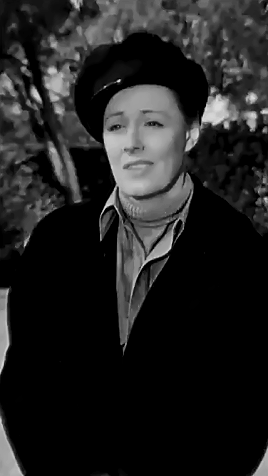
My Favorite Wife (1940) dir. garson kanin
#my favorite wife#irene dunne#classicfilmcentral#cinemaspast#old hollywood#garson kanin#my favourite wife#movie tag#ellisgifs#i love kids <3 they will boast about literally anything <3#queue
32 notes
·
View notes
Text
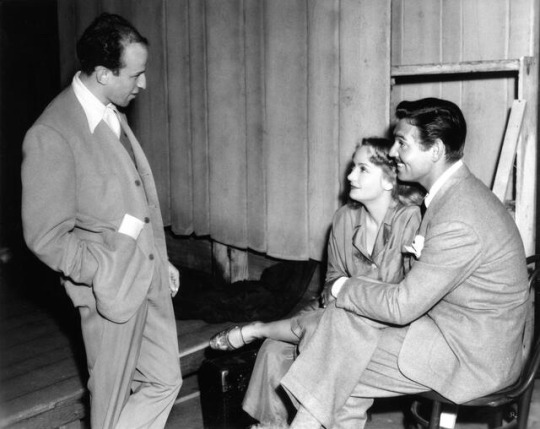
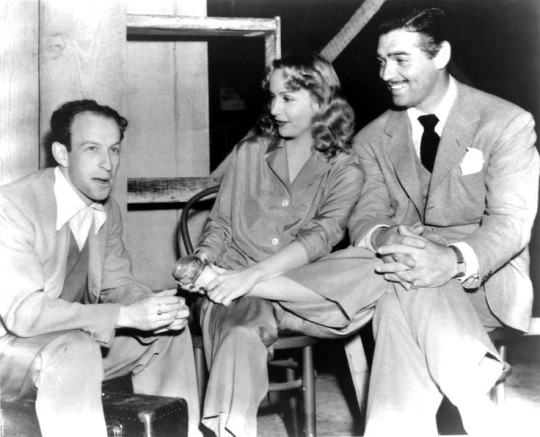
Director Garson Kanin with Carole Lombard and her visitor, Clark Gable, on set of THEY KNEW WHAT THEY WANTED (1940).
28 notes
·
View notes
Text
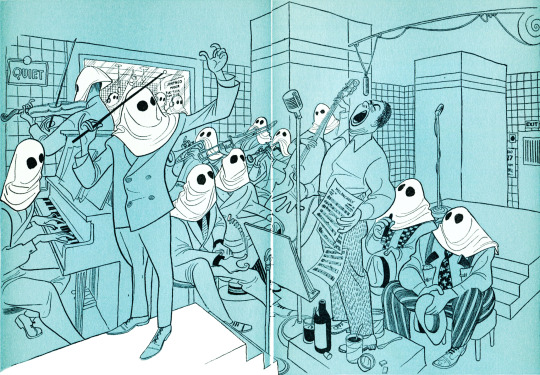
Al Hirschfeld illustration
Do Re Mi by Garson Kanin. 1955.
via flickr
#hooded orchestra?#nightmare#1955#al hirschfeld#vintage illustrator#illustration#vintage#weird#garson kanin#do re mi
17 notes
·
View notes
Text
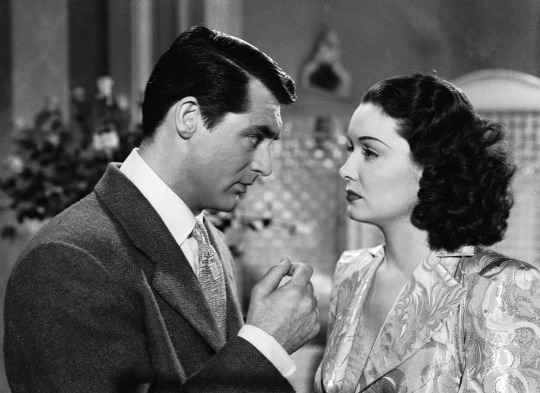
Cary Grant-Gail Patrick "Mi mujer favorita" (My favorite wife) 1940, de Garson Kanin.
4 notes
·
View notes
Quote
To all the dumb chumps
and all the crazy broads...
past, present and future...
who thirst for knowledge
and search for truth...
who fight for justice
and civilize each other...
and make it so tough
for crooks like you...
and me.
Born Yesterday, Garson Kanin (1949)
0 notes